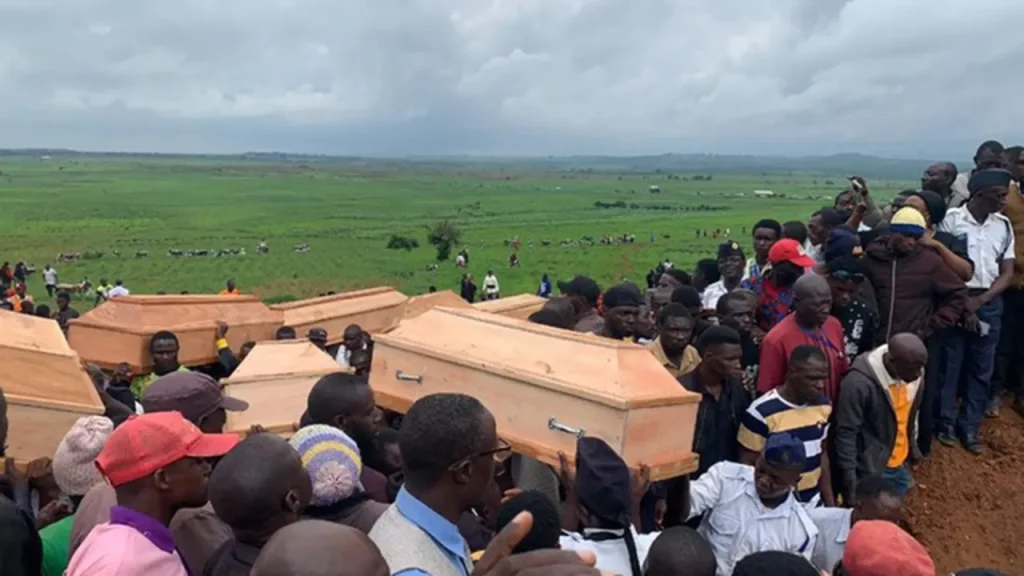Nigeria’s Crisis: Understanding the Complex Reality Beyond Religious Narratives
In a significant diplomatic confrontation, Nigeria’s ongoing violence has become the center of international debate, with stark disagreements between African Union officials and U.S. political leaders about how to characterize the crisis. African Union Commission Chairman Mahmoud Ali Youssouf recently rejected claims of Christian genocide in Nigeria, sparking immediate pushback from Washington. This tension highlights the complex nature of Nigeria’s security challenges and the different frameworks being used to understand them.
The situation in northern and central Nigeria has deteriorated over several years, with Christian communities reporting escalating violence including killings, abductions, and village attacks. However, African Union leadership offers a different perspective on the crisis. Speaking at the United Nations, Chairman Youssouf firmly stated, “There is no genocide in northern Nigeria,” arguing that the violence cannot be compared to atrocities seen in places like Sudan or eastern Democratic Republic of Congo. He emphasized that Muslims, not Christians, constitute the primary victims of Boko Haram violence, citing “documented references” to support this claim. Youssouf cautioned against oversimplification of what he described as an “extremely complex” situation, warning that international actors should avoid reducing the crisis to a single narrative that might obscure its true nature.
The response from Washington presents a stark contrast to the African Union’s assessment. The White House delivered a pointed message, referencing President Trump’s statement that if Nigeria continues to allow the killing of Christians, “the U.S. will immediately stop all aid and assistance to Nigeria and may take action to completely wipe out the Islamic terrorists who are committing these horrible atrocities.” The administration noted that Trump has designated Nigeria a “country of particular concern” and instructed the Department of War to prepare for potential action—signaling a much more interventionist approach based on a different understanding of the crisis. This hardline stance reflects a view that religious persecution, specifically targeting Christians, lies at the heart of Nigeria’s troubles.
Some American lawmakers are advocating for even stronger measures. Senator Ted Cruz accused Nigerian officials of creating “an environment in which Christians are being persecuted and slaughtered” through their enforcement of sharia law and tolerance of Islamist violence. Rather than addressing these issues, Cruz claimed, the Nigerian government is “waging a media campaign to escape exposure and accountability.” Representative Riley Moore went further, suggesting that the United States could implement sanctions or even engage in “kinetic military action” in response to what he termed the “genocide” of Christians in Nigeria. Trump has designated Moore, along with Chairman Tom Cole, to lead a congressional investigation into the killing of Christians by Islamist militants in the country.
United Nations officials have attempted to offer a more nuanced perspective. When questioned about Christian persecution in Nigeria and President Trump’s warnings, UN spokesman Stéphane Dujarric acknowledged that the “Nigerian government has been struggling with an insurgency that has been killing people, whether Muslims, Christians or others.” This framing suggests the UN views the crisis primarily as a security challenge affecting multiple religious communities, rather than a targeted campaign against Christians specifically. Dujarric emphasized that any assistance should be provided “with the cooperation of the Nigerian authorities,” implying a preference for collaborative approaches over unilateral intervention or punitive measures.
The competing narratives surrounding Nigeria’s crisis reveal profound differences in how regional and global actors interpret complex conflicts. The African Union’s rejection of the genocide label and emphasis on the multifaceted nature of the violence stands in sharp contrast to the religious persecution framework advanced by some U.S. officials. This disagreement is not merely semantic—it carries significant implications for policy responses. If the crisis is primarily viewed as religious persecution or genocide, it might justify stronger international intervention. If understood as a complex security challenge affecting all religious communities, collaborative approaches focusing on regional stability might be prioritized. As Nigeria continues to face these devastating challenges, how the international community ultimately frames and responds to the crisis will shape the country’s path forward and the lives of millions of Nigerians caught in the violence.


